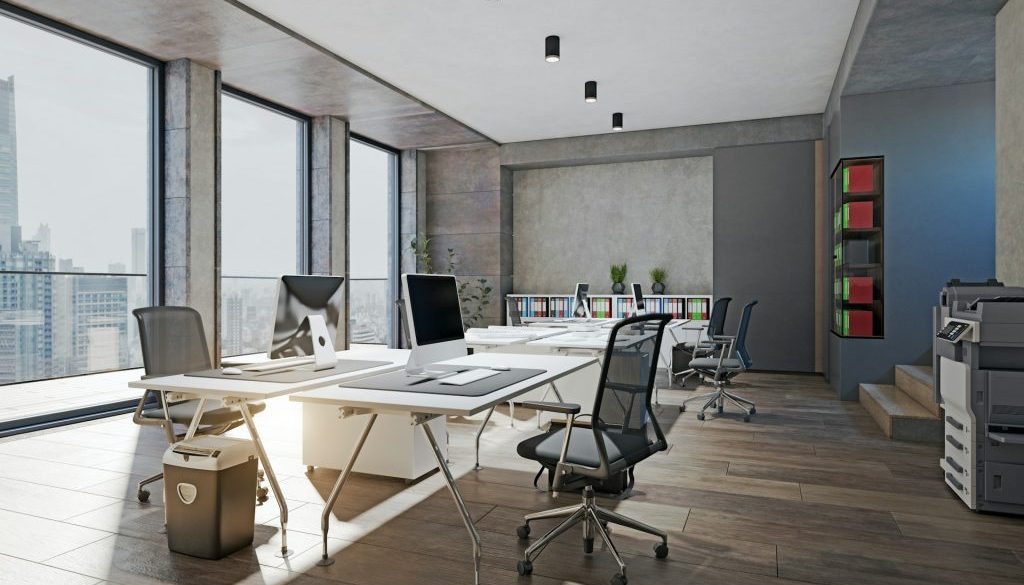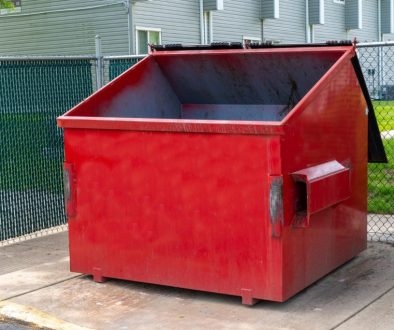Large-scale office renovations don’t just involve paint, planning, and new furniture. There’s also the not-so-glamorous side of things — the mess. Managing the waste created from pulling apart walls, removing flooring, updating electricals, and chucking out old fixtures takes just as much thought as the design phase. Without a plan in place, piles of rubbish can quickly slow everything down, make the site harder to work around, and in some cases, even lead to safety problems.
For offices in Wilmslow, organising skip collections properly isn’t just about removing the waste. It’s about keeping the renovation running without delays and making better use of space as you go. With limited parking and access lanes in the area, skips left too long or not collected on time can cause headaches for both site workers and the public. A solid waste plan, particularly around skips, keeps everything moving and helps avoid setbacks that cost time, money, and effort.
Planning Your Skip Needs
The first thing to figure out is what you’re actually dealing with — because not all waste is the same. Renovating offices often involves everything from old carpet tiles and broken desks to offcuts of wood, brick, plasterboard, and leftover wiring. This mixture means you need to predict how much is likely to go in the skip and what type of skip will do the job best.
Start by walking through the full renovation plan and tick off each area that will produce waste. This gives you a clearer picture of the volume. Factor in:
1. The size of the office being stripped or refitted
2. Types of materials being removed (furniture, drywall, electrics, etc.)
3. How long the work is expected to take
4. Where waste will be stored before being loaded
5. Whether the rubbish can be mixed or needs to be separated
Once you’ve got that rough picture, you can work out the type and volume of skips you’ll likely need. Most large office renovations will require builders skips or, in some cases, multiple large skips to manage the volume. If you’re unsure, go a size up to avoid the need for an emergency extra skip midway through the project.
And don’t forget about space. Bigger projects often mean tighter sites, so consider where the skips will go. Avoid blocking foot traffic or vehicle routes. Choose an area that’s both safe and easy for workers to reach. Since Wilmslow may require permits for skips placed on the road, planning ahead is key to keeping things on schedule without any surprise delays.
Scheduling Collections Efficiently
Even with the right number of skips and good placement, bad timing can still cause problems. One skip overflowing before the next one arrives can slow things down, create cleanup headaches, and leave your crew with nowhere to put the waste. When time is tight, that’s something you can’t afford.
Rather than waiting until a skip is brimming full, think in phases. If the work is broken into stages — say ground floor, then upper floors — schedule skips to be swapped at key points. This keeps things moving smoothly. The best approach is to discuss your overall schedule with your skip hire provider at the beginning and set up a collection plan that fits the flow of the job.
Helpful tips for managing collections include:
1. Align skip collections with major stages of your renovation
2. Set collection dates early and only adjust if needed
3. Ask about quick turnaround collection services
4. Nominate someone on-site to liaise with the skip hire company
5. Keep track of how full each skip gets daily
Good communication is half the battle. Make sure the team knows when skips are due, where they’ll be placed, and who to contact if plans change. Even the best-run renovations run into surprises, but if you’re organised with your skip collections, waste won’t become the problem that derails your schedule.
Managing Different Types Of Waste
Office renovations produce more than just chunks of plaster and old desks. Mixed into the load can be hazardous or sensitive materials like wiring, paint, foam insulation, broken electronics, and adhesives. These can’t just be thrown into a general skip without risking fines or safety issues.
To keep things simple and safe, organisation is key. From the start, assign categories to your waste. Set up colour-coded bins or signs to indicate which waste goes where. Most renovation rubbish will fall into:
– General waste: carpet, wood pieces, ceiling tiles, plasterboard
– Recyclables: cardboard, paper, metal scrap
– Hazardous materials: paint, insulation, adhesive tubes, broken devices
Hazardous items should not go into regular skips. Arrange separate collection or dedicated containers for them and work with a licensed disposal company. This approach not only ensures safety on-site but also keeps you aligned with local Wilmslow waste regulations specific to commercial projects.
A common issue during projects is misuse of skips when signs aren’t clear. For instance, mixing paint tins or batteries into a general waste skip can require a last-minute reschedule and manual sorting at extra cost. A quick walkthrough with your team before work begins can help clear up what goes where and how to deal with trickier disposal needs.
If your renovation includes major infrastructure upgrades, like replacing old heating or data systems, you might run into even more specialised waste. Don’t guess. Having a chat with waste professionals early on saves a lot of time and stress later.
Environmental Considerations During Renovations
It’s easy for waste to be treated like an afterthought when everyone’s focused on tearing down and rebuilding—but how you handle it can impact far beyond the job site.
Skipping thoughtful waste management often means more waste going to landfill. With the right skip collection plan, you can reduce that significantly. Much of what comes out during an office renovation in Wilmslow can be recycled, reused, or otherwise diverted from standard disposal streams if planned properly.
Ways to make your renovation more sustainable include:
– Recycling wooden offcuts, metal desk frames, and cardboard
– Allocating different skips or containers for recyclable material
– Donating unwanted desks or office furniture to local organisations
– Getting rid of hazardous materials via trained and licensed handlers
– Encouraging staff to separate everyday waste from site rubble
Getting your team involved genuinely makes a difference. Put up signs around the work area, label bins clearly, or even run a quick five-minute morning brief. When everyone knows what to do, managing waste becomes part of the job instead of a burden at the end.
Projects that build sustainability into their plans often leave a cleaner footprint and enjoy smoother relations with site landlords and local authorities. It also puts your business in a stronger position to meet increasing expectations around green practices.
Clearing the Path for a Smooth Return
As the dust settles and the final touches are made to your renovated Wilmslow office, it’s tempting to shift all focus to getting back to normal. But don’t let leftover waste be the detail that gets missed.
The end of a renovation should include one last thorough clean-up. Make sure skips are ready and that all contractors have cleared their zones. A walkthrough of each floor or section helps ensure nothing’s been forgotten in corners, storage rooms, or outdoor areas.
Key steps for final waste collection include:
1. Booking skips shortly before staff move back in
2. Checking for any hazardous materials that may have been misplaced
3. Confirming that all trades have dealt with their waste
4. Sorting out anything that could be recycled, salvaged, or reused
A clean site not only makes for a more welcoming return for staff and visitors, but also makes discussions with landlords or project partners easier. Avoiding last-minute issues with missed waste keeps your handover process stress-free and professional.
Getting office renovations right comes down to smart planning and clear execution. From correctly sizing your skips through to collection timing and waste sorting, each stage contributes to a safer, tidier, more efficient project. And in busy places like Wilmslow, those small details can make all the difference to how smooth your renovation ends up being.
To ensure your office renovation in Wilmslow goes smoothly, it’s important to handle waste efficiently. When you’re ready to hire a skip in Wilmslow, trust Enviro Skip Hire to make the process easy and effective. We’ll help you stay on track with reliable service and the right skip for your needs.




